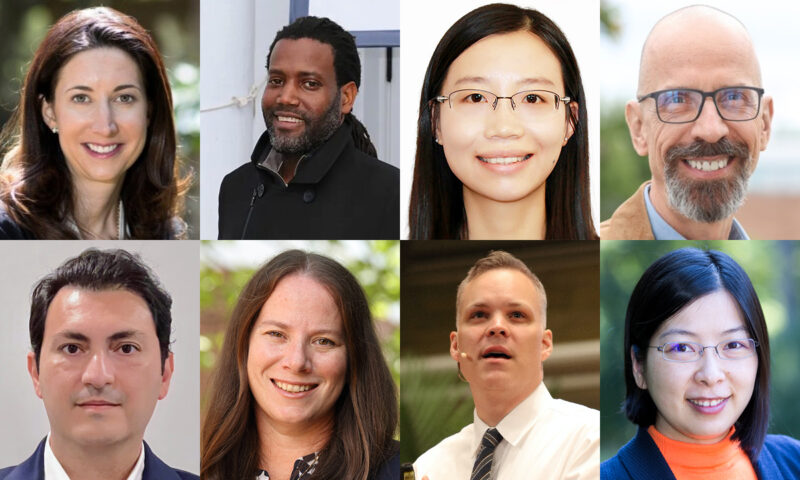Experience is a tricky and complicated teacher. Sometimes we grow by taking risks that push us beyond what we thought we were capable of. Sometimes we fail, and try to understand why. Sometimes we reach the limit of our ability to learn from an experience, sometimes we draw the wrong lessons, and sometimes we struggle to make any sense of an experience at all.
As it is with us as individuals, so it is with organizations. Businesses, schools, governments, even family units—every organization is a web of individuals trying to draw knowledge from experience and ideally convert that knowledge into routines, actions, or behaviors that better help the organization succeed.
McIntire Professor and Associate Dean for Undergraduate Programs David Lehman is intrigued by organizational learning exactly because it is as much a study of human nature as it is of datasets and theory. His work has explored topics such as risk-taking, rule-breaking, and decision-making within organizations ranging from NFL teams and restaurants to hospitals and the export business. And in two recent papers, he has examined the learning benefits of acting before you’re ready and the potential pitfalls and unintended consequences of trying to draw lessons from failure.
Learning More When There’s More to Learn
In the first paper, in Journal of International Business Studies, Lehman collaborated with researchers in Portugal and the UK interested in emerging economies. If one of the pressing issues of the 21st century is economic inequality among the world’s nations, then developing economies want to identify effective paths to growth, and one of these might be the global export market.
But two existing theories suggest that firms from more developed countries are more likely to be positioned both to enter the export market and, once there, to benefit in ways that make them even more successful.
The first is the “self-selection hypothesis,” that only the most productive and efficient firms have the resources and expertise to choose to enter the export market. The second is the “learning-by-exporting” hypothesis, that firms that enter the export market are exposed to valuable new knowledge and experiences—different market conditions, production practices, technologies, expertise—on this bigger and more competitive playing field. Taken together, these two hypotheses would suggest a kind of “virtuous cycle,” as Lehman describes it, in which the benefits of entering the export market would accrue to those firms already most productive and efficient, making them even more productive and efficient relative to non-exporting firms.
But Lehman and his co-authors suspect there is room for nuance. They studied a series of World Bank surveys of private sector manufacturing firms from countries representing a range of economic development and developed a multi-country longitudinal dataset of more than 3,400 firms from 63 countries.
They found that firms in more developed economies are indeed more likely to self-select into the export market—because, thanks to the competitiveness of their home markets, they’ve already reached a level of productivity and efficiency that makes that next step possible. Yet, contrary to the learning-by-export hypothesis, the authors found that these self-selected firms didn’t appear to gain much from the experience, says Lehman, likely because “they are exposed to so much in their home market that they won’t necessarily be exposed to new knowledge in a foreign market.”
By contrast, they found that firms from less-developed economies, though less likely to self-select into the export market, also seemed to gain relatively more “learning-by-export” advantages from doing so—because they were exposed to experiences unavailable in their home markets.
There’s an argument then, says Lehman, that countries with emerging economies could benefit by facilitating firms’ entry into the export market without waiting for the self-selection threshold to be reached; in other words, like pitting yourself against more accomplished players on a chess board or the soccer field, there’s potential learning reward in taking a risk to “play up” in the export market before you’re ready. The analysis from his research team’s paper, says Lehman, “offers more hope for firms in emerging economies—that globalization can be a force through which firms from less-developed countries can catch up with firms from their more-developed counterparts.”
The Trouble with a Story
If the first paper offers an optimistic perspective, Lehman’s second paper is instead a more cautionary tale. Written with co-authors from Vanderbilt and Georgia State University, the paper in Organization Science draws on a database of detailed mandatory accident reports from U.S. natural gas pipeline operators to consider the challenges of learning from failure.
As the authors point out, “Any given failure might involve a web of components that spans multiple layers of the hierarchy and points to various causal pathways,” making it “not necessarily obvious which action or set of actions caused the failure.” Nevertheless, Lehman notes, it is a deeply human quality to try to make sense of experience by reducing it to a coherent narrative, “and a lot of organizational and regulatory processes often not only facilitate but almost require this simplification.” In the case of these particular accident reports, “there are a lot of checks in place to verify the primary cause of the accident,” Lehman says.
But as the authors argue, however well-intentioned the goal of identifying a clear and definable cause, the result may be the unintended consequence of creating an oversimplified story of what happened. Organizational members rely on “simplified representations of failure,” the authors write, “to arrive at a collective understanding of experience that is both plausible and coherent.”
What’s more, the authors argue that organizations further tend to simplify by focusing more of their attention on human errors rather than failures from other causes. “Often it is easy to blame a person,” Lehman says. “It’s nice to have a scapegoat, and that simplifies the story even more.”
The authors found a positive outcome to that focus, in subsequent reduction in failures from human error. But an unintended negative outcome was less attention to other possible causes of failures, because “attention is a particularly scarce resource,” notes Lehman, and when you focus it in one place you inevitably reduce it in another.
Together, these recent papers suggest that we do well to remind ourselves, as the authors note in the second paper, that “experience is an imperfect teacher” and we, and the organizations we belong to, are imperfect learners. It’s enormously challenging to draw meaningful lessons from the full complexity of our experience, much less to come to a collective and coherent understanding of it.
“We try to be rational,” acknowledges Lehman, “but there are limits.”



